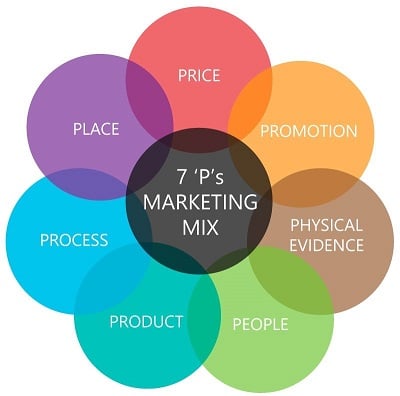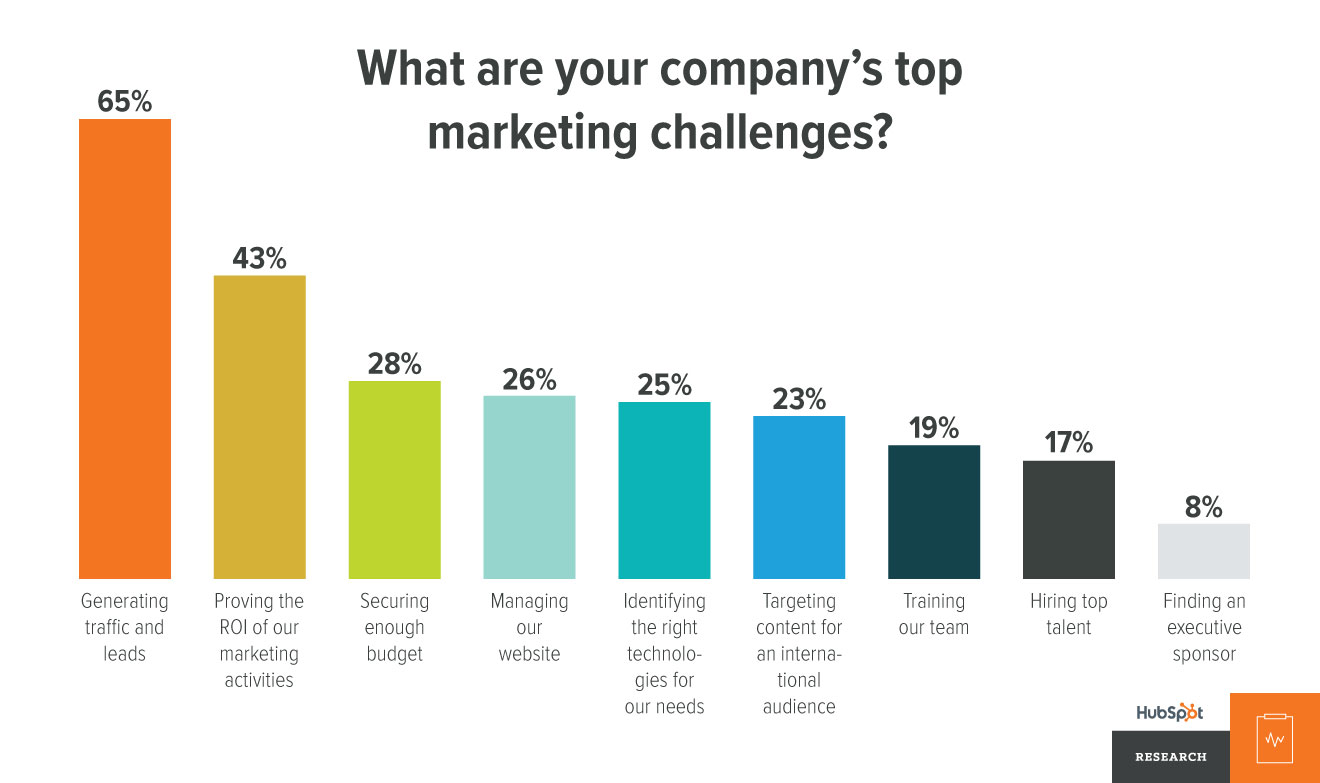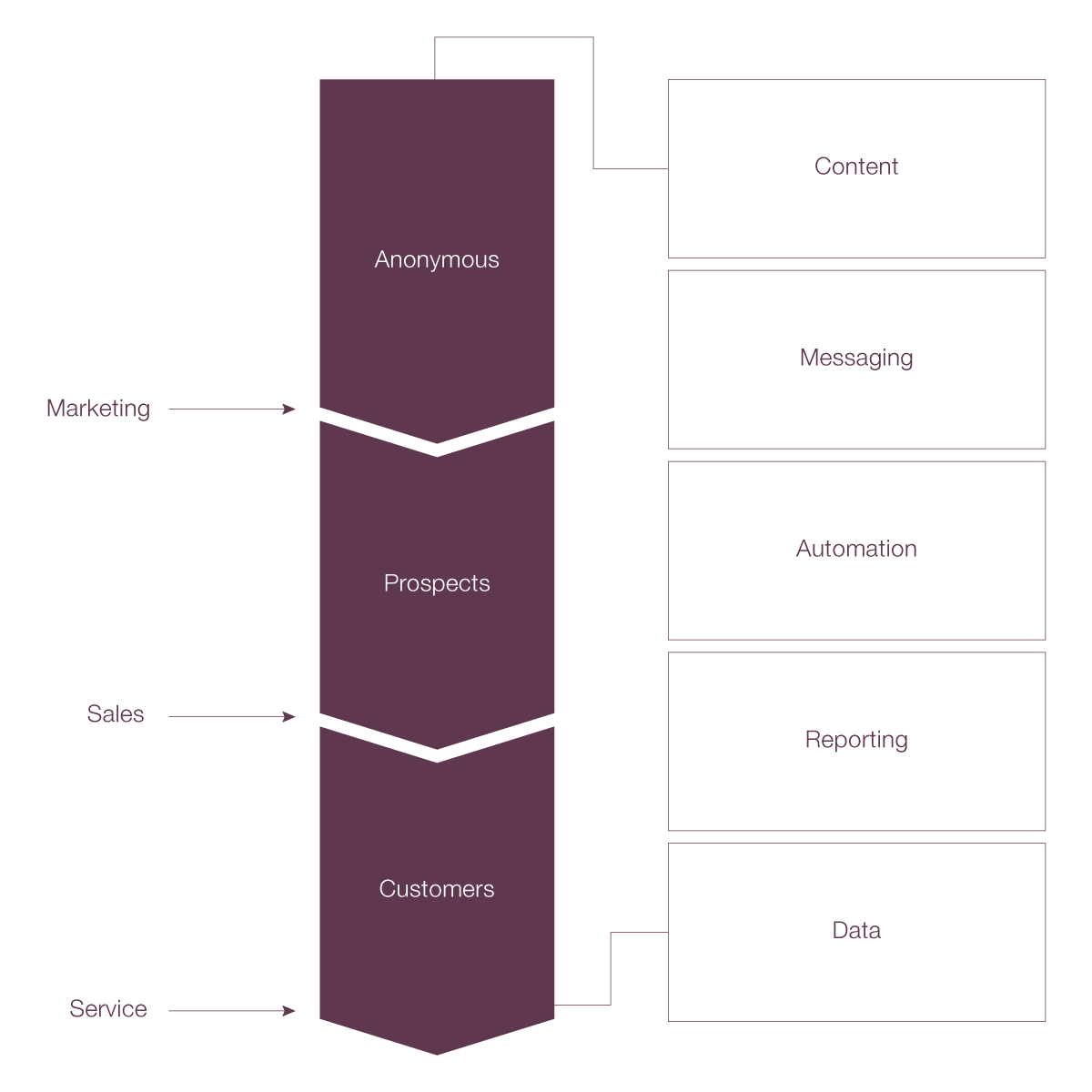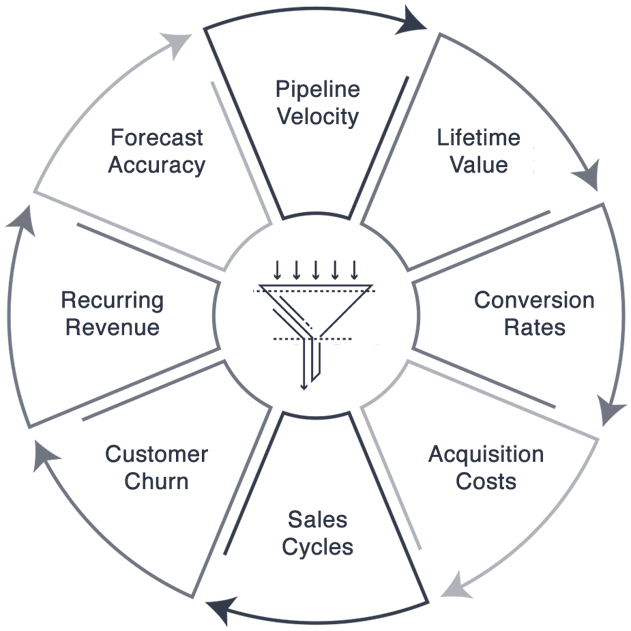In today's highly competitive landscape, services marketing has become increasingly important for businesses to thrive. But what sets it apart from traditional product marketing?
In this blog post, we delve into the world of services marketing, discussing its unique characteristics, and the 7 characteristics of services marketing.
7 P's of services marketing, service marketing mix use cases, types of service marketing, successful examples of exceptional service experiences, and tips for effective services marketing in 2026.
Short Summary
- Services marketing focuses on promoting intangible benefits and building customer relationships to create value.
- The 7th is the 7th. P's of services marketing mix are essential components for a successful strategy, including products, prices, places, promotions people processes and physical evidence.
- Businesses should focus on utilizing digital channels, customer profiling and trust building in order to effectively market services in 2026.
Understanding Services Marketing

Services marketing is the promotion of intangible benefits and the creation of strong relationships with customers through personalized services. Unlike product marketing, which focuses on tangible goods, services marketing deals with intangible offerings that create value for customers.
As a result, many service companies' marketing strategies are centered around showcasing the service provider's ability to deliver superior service quality, while building trust and fostering customer loyalty.
Intangible Benefits
One of the key aspects of service marketing is the promotion of intangible benefits trade services, which are experiences or values that cannot be seen or touched directly. Examples of intangible services include consultancy, financial management, and legal representation.
These services must be experienced by customers to derive value, and this value is not easily transferable from one customer to another. The art and science of marketing the intangible benefits can be challenging, as it requires showcasing the service provider's expertise, convincing potential and existing customers of the value proposition.
Building Relationships
In services and marketing industry, building strong relationships with potential customers is of utmost importance to ensure consistent service quality. This involves focusing on the personnel providing the service, their ability to connect with prospective customers, and the overall customer experience.
By utilizing internal and external marketing and efforts, businesses can educate and motivate their customer contact, service personnel and support staff to collaborate effectively in delivering customer satisfaction. This emphasis on relationship-building helps create trust, which is crucial for customer retention and referrals.
The 7 Ps of Services Marketing Mix

The 7 of them. Ps of service marketing mix are essential components of a successful services marketing strategy. Products, prices, places, promotions, people, processes and physical evidence are key to any service company that's success.
All of these elements must be considered to achieve success in the marketplace. Product of services marketing mix typically refers only to the intangible service offering, while price involves determining appropriate pricing strategies and factors that influence customer perception of value.
Place focuses on the location and accessibility of the service, and promotion encompasses various different, marketing tools and strategies used to differentiate and create awareness of the service. People are integral to delivering quality service, and process involves mapping and standardizing service delivery processes.
Lastly, physical evidence includes tangible cues physical products that help customers assess the quality of the service being offered.
Product
In good service marketing strategy, the product is an intangible offering that creates value for the customer. The scope of the product section in a services marketing strategy includes the characteristics of the service and how it compares to other providers. Attributes such as design, technology, perceived usefulness, and security can be incorporated into the product section to showcase the unique aspects of the a service provider.
Service blue printing is a useful tool for defining the service product, as it provides a clear depiction of the process through which the service reaches the end customer.
Price
Price is the amount a customer pays for the service in service marketing. When determining pricing for professional services only, factors such as overhead costs, labor and materials, competitor pricing, and price packets should be considered.
Price perception plays a significant role in intangible services, as customers often associate a higher price with better quality. Businesses should consider their target audience's price sensitivity and the pricing of their competitors when establishing prices for their services.
Place
Place is an important factor in service marketing, as it determines the location of the service product and influences customer responses, service quality perception, and competition. Businesses should consider aspects such as accessibility and advertising location when determining the ideal location for their own services business to consumer it.
In addition, online services should take into account secure payment, transaction types, and account management to provide an optimal customer experience.
Promotion
Promotion is a vital tool in service marketing, as it distinguishes a brand's services by making potential customers aware of the offering through various channels. These channels include advertising, contests, livestreams, endorsements, and social media.
By using interactive marketing, using outbound marketing and utilizing promotional strategies that resonate with their target audience, businesses can effectively differentiate their services from competitors and remain competitive in the market.
People
People play a crucial role in defining a service and impacting an organization's success. Companies invest in their people by providing training, motivation, and benefits to ensure employee satisfaction.
In the 7 Ps of service marketing, the people element refers to customer-facing staff who can influence customer satisfaction. Companies may employ training, scripting, and upselling strategies to enhance customer service, and may also customize the customer service experience to suit individual needs.
Process
Process is the method by which a service is provided to customers, and is essential for ensuring consistency and reliability consistent service quality. Businesses can use process mapping, service blueprints, and Standard Operating Procedure documents (SOPs) to train staff and visualize the steps involved in the service delivery process.
By clearly and superior delivery process and defining the service process, businesses can guarantee customer satisfaction, enhance brand visibility and build trust.
Physical Evidence
Physical evidence in services marketing refers to the tangible cues customers use to assess the quality of a a service based business itself. This includes the physical environment in which the service is provided and any tangible commodities marketing materials that facilitate the delivery or communication of the service.
By providing the service encounter a well-appointed environment and tangible items that meet customer expectations, businesses can enhance perceived service quality and foster customer trust.
Types of Service Marketing
There are three primary types of service marketing: B2C services marketing typically refers to service based, B2B services marketing typically refers to service sector, and post-purchase service marketing. B2C service marketing focuses on providing services to end customers, such as hospitality, telecom, and financial services.
B2B service marketing involves companies providing services to enterprises and organizations, demonstrating business and customer value, through the usage of their service. Post-purchase service marketing adds complementary services to the core product, such as warranty, customer support, and repairs, which can serve as differentiation factors for customers.
B2C Service Marketing
B2C service marketing mix involves providing services directly to end customers, with a focus on meeting their specific needs and expectations. Examples of B2C service marketing include the hospitality industry, which leverages services marketing to promote its rooms, restaurants, free wifi, and spas.
Strategies for effective B2C service marketing in 2024 may include leveraging digital channels, such as social media and email campaigns, and focusing on personalized customer experiences to build trust and loyalty.
B2B Service Marketing
In B2B service marketing, companies provide services to other businesses and organizations, showcasing the business value derived from using their service. Technology services firms, for example, may have marketing message to demonstrate their success in their service based companies providing value to similar organizations as the target customer through references and case studies.
By focusing on the unique needs of business to business clients and demonstrating expertise and value of multiple services, business to business only, B2B service marketing can effectively generate interest and drive sales.
Post-Purchase Service Marketing
Post-purchase service marketing involves providing additional services to customers after they have completed a purchase, with the aim of fostering customer retention and loyalty. Examples of post-purchase services include warranty, customer support, and repairs.
By offering complementary services that enhance the core product or service business itself, businesses can differentiate themselves from competitors and create lasting customer relationships.
Challenges and Opportunities in Services Marketing

Service marketing strategies presents both challenges and opportunities for businesses seeking to succeed in today's competitive landscape. Customization of services to meet individual customer needs can be a challenge for service firms, but also a differentiating factor in a crowded market.
Trust building is crucial to all service marketing efforts, as it ensures repeat business and referrals. Utilizing digital channels, such as websites, social media, and email campaigns, can help service based businesses reach customers and drive sales more effectively than traditional marketing methods.
Customization
Customization is a powerful tool in the service marketing mix, allowing businesses to tailor their service offerings to the unique needs of individual customers. However, determining the appropriate level of customization while adhering to established service scope boundaries and structure can be challenging.
By focusing on customer needs and preferences, businesses can create tailored services that enhance customer satisfaction and foster loyalty.
Trust Building
Building trust with customers is essential in services marketing, as it forms the basis for customer relationships and loyalty. Customers must have confidence in a company's ability to provide a product or service that meets their expectations. Leveraging powerful customer reviews, testimonials, and case studies can help build trust, as can delivering on promises and providing superior customer service.
By focusing on trust building, businesses can create lasting relationships with their customers and ultimately drive success.
Successful Services Marketing Examples
Examples of successful services marketing can be found in various industries, such as other services tend the legal services sector, hospitality industry and technology services firms. These businesses have effectively utilized the principles of services marketing to create unique value propositions and differentiate themselves from competitors.
By analyzing these examples, businesses can learn valuable lessons on how to effectively implement services marketing strategies in their own operations.
Hospitality Industry
The hospitality industry is a prime example of successful services marketing, with businesses such as luxury hotels and resorts leveraging marketing strategies to promote their accommodations, dining options, complimentary wifi, and spa facilities. Physical evidence, such as well-appointed hotel rooms and amenities, plays a crucial role in helping customers assess the quality of the service provided.
By focusing on ensuring customer satisfaction and delivering exceptional service, the hospitality service industry here has thrived through the application of services marketing principles.
Technology Services Firms
Technology services firms are another example of successful services marketing models. These businesses utilize external and internal marketing channels, such as direct marketing such as advertising on travel websites, targeted outreach to past customers, leveraging social media platforms, interactive marketing, and issuing press releases, to promote their offerings and demonstrate their value to prospective customers.
By showcasing their expertise in technical service and the benefits they provide to their clients, technology services firms effectively differentiate themselves from competitors and drive sales.
Pro Tips for Effective Services Marketing

To succeed in services marketing in 2024, businesses should focus on utilizing their digital marketing channels, customer profiling, and building trust. Digital marketing channels, such as websites, social media, and email campaigns, can help reach customers and drive sales more effectively than traditional marketing methods.
Customer profiling can help businesses target the right audience and create tailored marketing messages that resonate with their customers. Building trust is crucial in service marketing, and using other people's words about your service, such as customer reviews and testimonials, can create credibility and foster lasting relationships with customers.
Utilizing Digital Channels
Digital channels play a significant role in the service industry in marketing, as they enable businesses to reach customers more effectively and efficiently than traditional marketing methods. By leveraging social media platforms, websites, and email campaigns, service businesses can create targeted marketing messages that resonate with their audience and drive sales.
Additionally, digital channels allow for real-time engagement and feedback encouraging customers, helping businesses refine their marketing strategies and better meet customer needs.
Customer Profiling
Customer profiling is an essential component of services marketing, as it helps businesses understand their target audience and create tailored marketing messages. By constructing integrated profiles of ideal customers based on demographics, psychographics, buying habits, and other attributes, businesses can develop a more accurate picture of their customers and inform service design decisions.
Customer profiling can also help businesses identify factors that influence buying decisions, allowing them to better target their marketing efforts and create more compelling marketing messages.
Services Marketing Takeaways

In conclusion, services marketing is a dynamic field that presents unique challenges and opportunities for businesses seeking to thrive in today's competitive landscape. By understanding the principles of service marketing strategies and adopting strategies such as customization, trust building, and utilizing digital channels, businesses can create compelling value propositions and differentiate themselves from competitors.
By learning from successful examples of services marketing emerged in the hospitality industry and technology services firms, businesses can gain valuable insights into how to effectively implement services marketing strategies in their own operations.
As we move into 2024, businesses should focus on leveraging digital channels, customer profiling, and building trust to ensure success in the increasingly competitive world of services marketing.
Frequently Asked Questions
What is meant by service marketing?
Service marketing is a type of marketing that focuses on offering value to customers through intangible products, such as services and experiences. This form of marketing uses communication, pricing, and promotion to increase brand awareness and sales.
Service marketing is all about customer service and satisfying customers' needs and desires.
What is service marketing with example?
Service marketing involves promoting services such as customer support, training programs, insurance, or transportation to customers. For example, an airline might use service marketing to promote flight tickets and additional services like baggage handling, seat upgrades, and meals.
Service marketing is the process of selling services marketing goods or services directly to a customer. An example of this could be a car dealership offering customers discounts on servicing and repairs, or an online store offering free shipping. Service marketing focuses on building relationships with customers to encourage loyalty.
What are the 7 concept of service marketing mix?
The 7 concepts of successful service marketing and product marketing are product, price, promotion, place, people, process and physical evidence. These seven key elements of service marketing triangle provide the necessary components for successful marketing of a service or product to potential customers.
By understanding and utilizing all 7Ps, businesses can build a comprehensive and effective marketing strategy.
What are the 5 elements of service marketing?
Service marketing requires the integration of five core elements extended marketing mix: product, service blueprint price, place, promotion and people.
By leveraging these elements of extended and full marketing funnel and inbound marketing mix, businesses can create a comprehensive service marketing strategy that is tailored to their target audience.
What is the meaning of service marketing?
Service marketing involves promoting a service in order to drive customer acquisition, loyalty and retention. It is distinguished from product marketing, which involves the promotion of tangible items, by focussing on intangible elements such as customer experience and satisfaction.
Service marketing strategies can also involve communicating the benefits of services to customers in order to encourage repeat business and to increase brand recognition.
